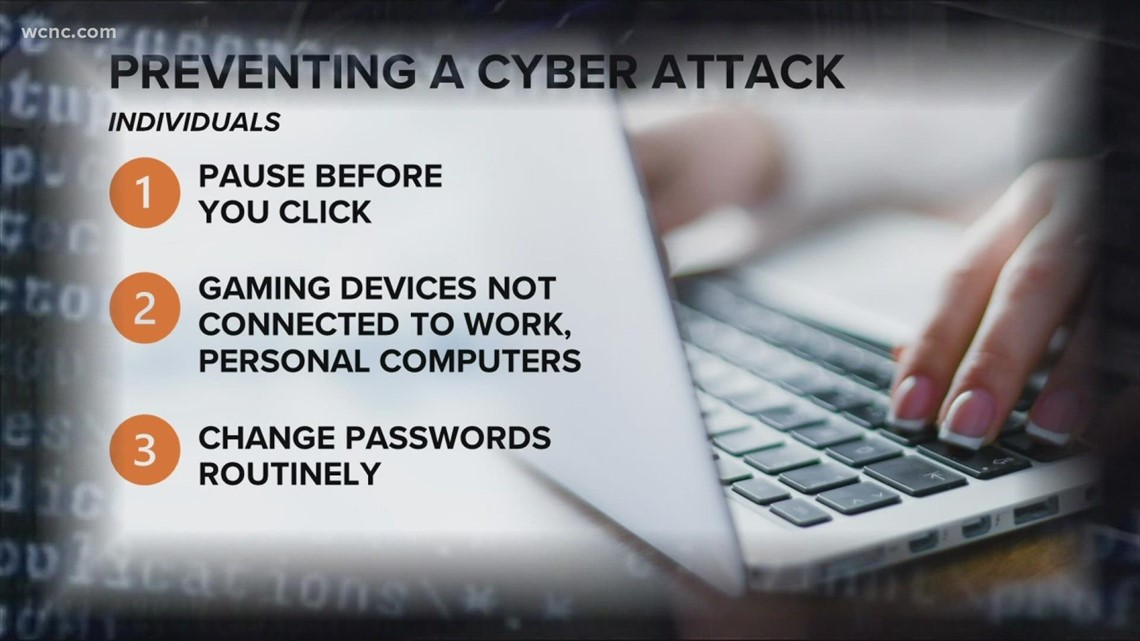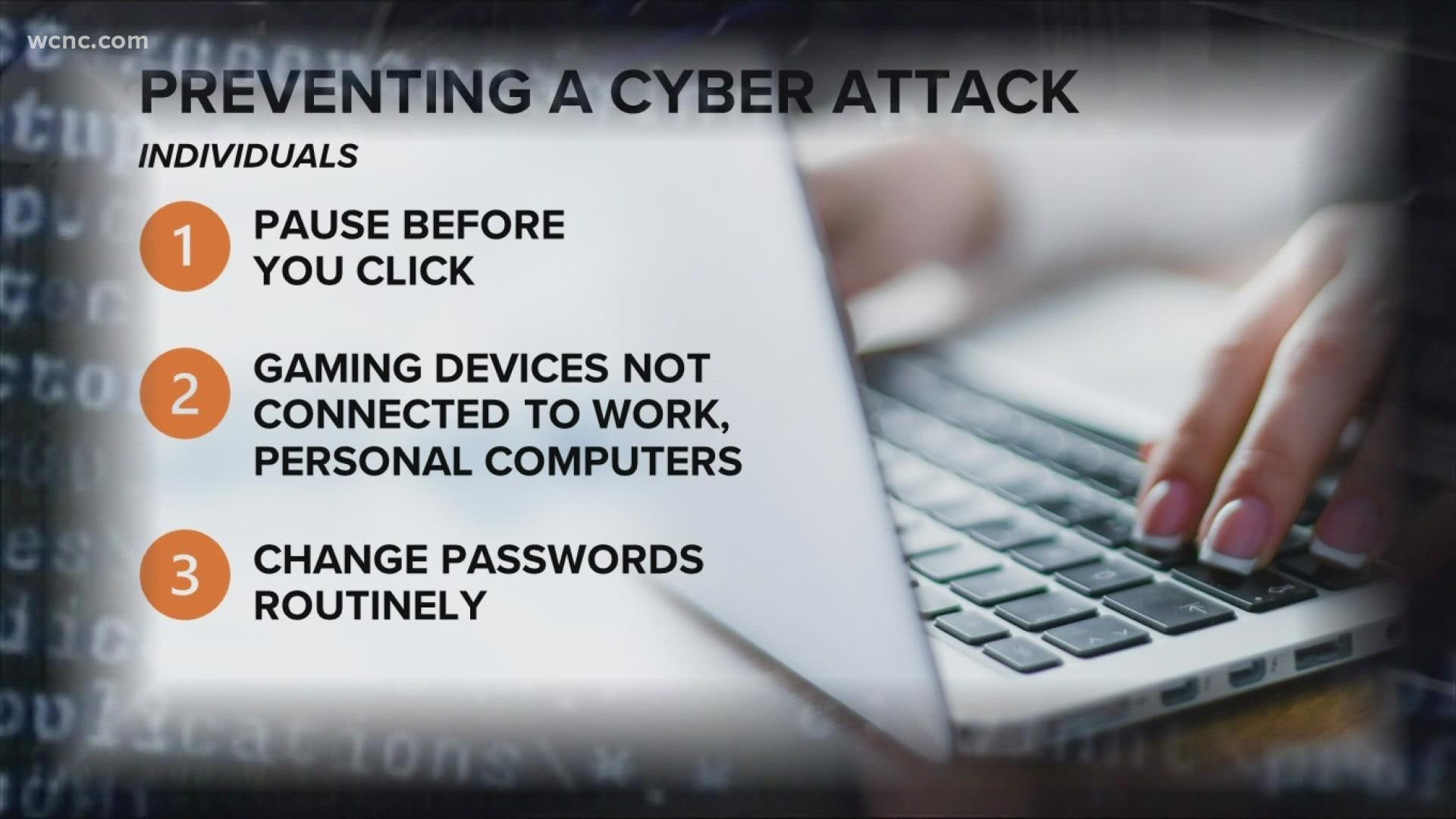CHARLOTTE, N.C. — A Russian hack could soon be coming, according to President Joe Biden. So, we wanted to know what could the targets be and how can you be prepared?
"Based on evolving intelligence Russia may be planning a cyberattack against us," President Biden said in front of a packed group of the nation's top CEOs. "The magnitude of Russia's cyber capacity is fairly consequential, and it's coming."
The warning comes as Russia continues its invasion into Ukraine and as sanctions continue to target Russia for its actions.
"If they [hackers] are weaponized by a nation-state, you know, they've got the resources and they've got the time," Brent Bigelow, who has been a cybersecurity expert in the Charlotte area for 35 years, said.
Since Russia invaded Ukraine, cyberattacks in the U.S. are up by roughly 80%, Bigelow said. He added Russian hackers are likely to go for financial institutions like banks as one of their first targets.
"If you go to an ATM, and it says 'declined,' you know, you get a little bit concerned," he said talking about the potential impacts a successful hack could have on everyday Americans.
He even imagined a hack on the U.S. Stock Exchange, noting it's not out of the realm of potential ideas for hackers.
"Think about a day of no trading," Bigelow said. "I have no idea what that would be, but that kind of disruption would have to be just truly impactful, financially."
The crosshairs could also be on infrastructures like the electric grid or another hack on Colonial Pipeline that would impact the gas supply, he said.
However, Bigelow said there are things corporations should do to prevent an attack. They should patch up security system shortfalls or gaps, make sure their systems are up to date, and follow up on alerts to see if they're legitimate, he said.
Individuals can take precautions, too. Bigelow said everyday Americans should pause and think twice before clicking links sent via email or text from unknown contacts or people posing as a known contact.


He also said to make sure your gaming devices aren't connected to your work or personal computers. That could cause another potential entry into your systems or accounts to be hacked.
Bigelow also noted everyone should routinely change their passwords to accounts, especially financial accounts, and make sure they are difficult or challenging passwords.
Contact Hunter Sáenz at hsaenz@wcnc.com and follow him on Facebook, Twitter and Instagram.

